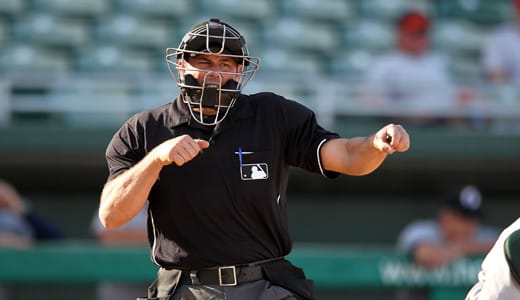Poilievre’s ‘Three Strikes’ Crime Crackdown:

The Conservative leader says enough is enough. But will mandatory minimums actually make Canada safer—or just fill prisons faster?
On April 9th, 2025, Conservative Party leader Pierre Poilievre dropped his biggest criminal justice proposal yet: a “Three Strikes and You’re Out” law targeting repeat violent offenders. If elected, he says, anyone convicted of three serious criminal offenses would face a minimum 10-year sentence, no bail, no parole, no second chances.
“Enough is enough. Repeat violent offenders belong in jail—not on our streets.”
— Pierre Poilievre, campaign speech
It’s the kind of tough-on-crime policy that draws applause at rallies—and raised eyebrows from legal scholars.
So, what’s actually in this proposal? And could it survive in Canada’s legal system?
Let’s break it down.

What the ‘Three Strikes’ Law Would Do
Here’s what Poilievre is promising:
- If you’re convicted of three violent or serious offenses, you’re automatically:
- Sentenced to a minimum of 10 years in prison
- Denied bail, parole, probation, or house arrest
- Classified as a “dangerous offender”, making your release dependent on proving you’re no longer a threat to society
Poilievre says this policy is a response to what he calls “Justin Trudeau’s soft-on-crime era,” pointing to repeat offenders being released on bail and committing violent crimes while awaiting trial.
“The system keeps giving second and third chances to dangerous people. This stops that.”
— Global News
The Legal Reality Check: Not So Fast
The policy sounds simple. The legal reality? Not so much.
According to Professor Jennifer Quaid, a criminal law expert at the University of Ottawa, there’s a “very good chance” this would face serious constitutional challenges.
Why? Because:
- Mandatory minimum sentences have been repeatedly struck down by Canadian courts for violating the Charter of Rights and Freedoms
- The “dangerous offender” designation is meant to be case-specific—not automatic
- Removing bail, parole, and conditional release across the board raises major concerns about proportionality and due process
“Parliament can’t just declare someone dangerous after three strikes. That’s not how our system works.”
— Jennifer Quaid, Global News
In other words, the Supreme Court would likely have a say—and it might not go Poilievre’s way.
Does It Actually Work? Lessons from the U.S.
If this sounds familiar, it’s because the U.S. tried it already.
In the 1990s, multiple states—especially California—rolled out “Three Strikes” laws.
What happened?
- Prison populations exploded
- The policy disproportionately affected marginalized communities
- Many offenders received life sentences for non-violent crimes
- The laws were later reformed or repealed due to high costs and questionable results
Studies from the Brennan Center for Justice and the American Bar Association suggest there’s little evidence that these laws actually reduce crime long-term.
Canada’s system is different—but the risks of over-incarceration and ineffective deterrence still apply.
So… Is Crime Actually Rising in Canada?
Yes—and Canadians are noticing.
- According to Statistics Canada, the Crime Severity Index (CSI) rose by 4% in 2022, the second consecutive annual increase.
- Violent crime was up 5%, with increases in robbery, extortion, and firearm-related offenses.
- Homicide rates hit their highest point since 1992, with more than 875 homicides recorded across the country.
- In urban centers like Toronto and Vancouver, police report an uptick in repeat offenders being charged with multiple violent crimes while out on bail.
Public trust is fraying. A 2024 Angus Reid poll showed 62% of Canadians feel less safe than they did five years ago, and 3 in 4 say the justice system is “too lenient” on violent criminals.
Whether it’s justified or not, there is a deep sense that the system isn’t protecting people—and Poilievre’s policy taps straight into that anxiety.
The Faultline Take
Will this policy actually make it through Parliament?
We can’t say for sure. If Poilievre wins the federal election and secures a majority, the chances are higher—but even then, constitutional challenges are almost guaranteed. Legal scholars have already flagged concerns about Charter violations, and the courts have struck down similar legislation in the past.
But here’s the truth:
It’s refreshing to see politicians taking crime seriously.
Canadians feel unsafe. Families are nervous. And the system clearly has holes that need to be patched.
This “three strikes” policy may be too blunt, too sweeping, and legally shaky—but the message it sends is what many voters are craving: accountability.
Let’s just hope the solution doesn’t create more problems than it solves.





